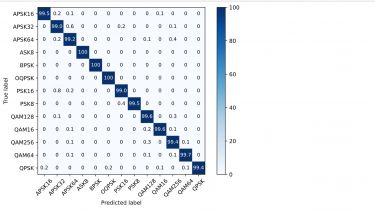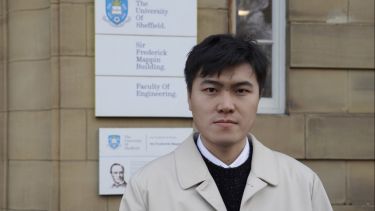GBSense is an EPSRC fellowship project, which aims to alleviate the difficulties with Nyquist-rate sampling. They aim to do this through integrating the knowledge that already exists in relation to reconfigurable transmission lines and smart antennas in order to design GHz bandwidth sensing.
Through GBSense, there are a lot of creative possibilities as the real-time, experimental platform can be used without requiring Nyquist-rate sampling. This intelligent spectrum management system gives those who use it access to software and hardware that means signal sensing, analysis and communication can be carried out.
The system also has the ability to interface with a cheap computing unit such as a Raspberry PI (where sub-Nyquist algorithms can be hosted) in order to enable “better human-computer interaction, advance the current knowledge in sub-Nyquist sampling theory and bring a new set of challenges to both software and hardware engineers.” (Source: http://www.gbsense.net/)
The plan is that the results of the project can continue to be shared with the public through a variety of routes, including workshops and outreach activities, and competitions, such as that which PhD student Xin Dong took part in and placed third overall.
6G wireless communication systems are complex and ultra-dense heterogeneous network systems in which multiple services co-exist and numerous communication technologies are integrated. In the scenario in the competition which Xin Dong took part in, alongside his supervisor Professor Jie Zhang (University of Sheffield) and teammate Stefano Bakirtzis (University of Cambridge) an intelligent spectrum management system is required to manage spectrum resources, optimise network performance, and resolve the contradiction between supply and demand scientifically and efficiently.
This competition was based on deep learning algorithms to address an automatic modulation recognition task. There were two tasks included in the competition - the basic challenge was to train a deep learning model to recognise the modulation type. The second challenge was to train a deep learning model to recognise both the position of the central frequencies and the modulation types of the signal.
More detailed information about the challenge can be found at: http://www.gbsense.net/challenge/.
Speaking about the challenge, Xin Dong said: “This challenge helped me learn more about how to apply a machine learning algorithm to a communication system. It also helped me to familiarise myself with how to finish a machine learning competition. I spent more time on submitting the results than I expected, and realised I should spare more time for the results to be submitted next time."
“When facing difficulties in increasing the accuracy of a deep learning model, one should persist and not give up. In the future I will research using more papers in different areas to find new ways to improve my training methods and data augmentation.”
For the team’s efforts in the competition, where they ranked third of six shortlisted teams from across the globe, they have won a $3000 prize.
The competition has marked a promising beginning to my PhD period.
Xin Dong
PhD student in the Department of Electronic and Electrical Engineering, University of Sheffield
Xin Dong also stated that he would like to thank the Department of Electronic and Electrical Engineering for providing an environment with the high-performance computing required to train his deep learning model, as well as expressing his thanks to his teammates Professor Jie Zhang (who is also his PhD supervisor) and Stefano Bakirtzis, who he described as talented and capable.
Professor Jie Zhang is proud of the work being done at the University of Sheffield by PhD students like Xin Dong. He says:
“At the Communications Research Group, the Department of EEE, Sheffield University, we provide world-class research training for our PhD students. We have an excellent record of producing high-quality PhDs, many of whom have gone on to become renowned experts in both academia and the wireless communications industry. We have been pioneering in artificial intelligence for wireless communication for a decade in two directions: 1) Apply deep learning to wireless communication, as shown in this competition; 2) Use communication theory and algorithms to guide neural network design."
Our PhD students have opportunities to play important roles in research projects funded by research councils and industry partners, and to collaborate with talented and/or renowned researchers in the UK and other parts of the world.
Professor Jie Zhang
Professor in the Department of Electronic and Electrical Engineering, Supervisor and teammate of PhD student Xin Dong



